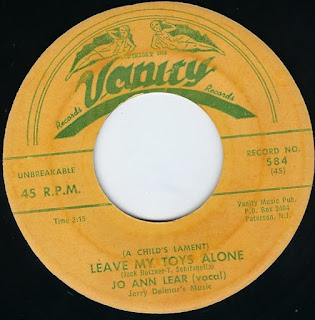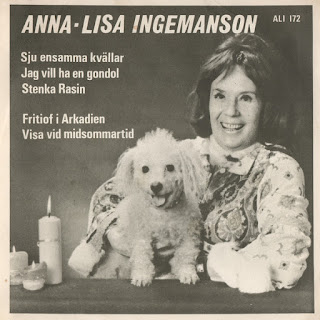Inspired by a recent comment on this here very blog, I have just purchased a copy of the rather splendid Eleven Plus Two by brother and sister act the Twintones. And I’m so glad that I did.
Issued by Cornish independent Summit Records in 1974, Eleven Plus Two houses the entire (as far as I am aware, anyway) recorded output of The Twintones. It’s a name oft employed by bands, but this particular act consisted of twins Kay and Gary Tucker, who hailed from the village of Nanpean, approximately 4 miles north-west of St Austell.
It’s a fun little record, and for pre-teens – the album was recorded when they were just eleven-years-old - these kids are really quite accomplished. Kay played keyboards and Gary drummed, although the duo also dabbled in other instruments, as can be heard on their recording of Remember You're A Womble, whereKay also plays trombone and Gary plays euphonium.
The album features an odd mix of family-friendly standards, from recent chart hits including Popcorn and Y Viva España (rendered “Eviva Espana” on the sleeve) to a rousing rendition of the Dambusters March and Ode To Joy. Still, you have to admit, the noise of heels clipping across the floor on These Boots Were Made for Walking (the addition of a 'g' at the end of walkin'is all-important) is inspired, and the duo almost manage to keep time to it. “This engineer, Alan, brought in a plank of wood and wore cowboy boots, and walked in the same rhythm as the piece, to embellish what we were doing,”* Kay explains.
Banana Rock, although mentioned in the sleeve notes and sandwiched on side two of the album between Ode To Joy and Melody Waltz (a tune composed by Kay herself), isn’t credited nor included in the track listing. A shame, as it’s the duos only vocal. It’s the second tip of the hat on the LP to the then-hugely popular kids’ TV show (and earlier book series) The Wombles, and to Mike Batt’s musical group of the same name. Coincidentally, the two tracks recorded by the Twintones bookended the album Remember You're A Womble, issued in the same year as Eleven Plus Two.Banana Rock provided the Wombles withtheir third consecutive Top ten single in June 1974.
 Sadly, everything about the packaging and marketing of this is half-arsed. The cover photo appears to be a blow up of a dimly-lit Polaroid, and Gary was none too impressed with the result: “The sleeve looked very dull to me, for two youngsters. They just used a flash camera, and it was all brown around the outside. They didn't do any location shooting – it was in the studio, they took the camera. We could have gone out on the cliffs and done a lot more to make it a bit brighter – not two children stuck in this dark hole,”* he said, many years later. The endorsement on the reverse of the sleeve from “international star” Dick Emery amounts to little more than an admission that he once met the siblings, although apparently he was impressed enough to invite them on stage with him for the last night of his residency at the “Talk Of the West”, the rather grand-sounding club within the Perran View Holiday Park.
Sadly, everything about the packaging and marketing of this is half-arsed. The cover photo appears to be a blow up of a dimly-lit Polaroid, and Gary was none too impressed with the result: “The sleeve looked very dull to me, for two youngsters. They just used a flash camera, and it was all brown around the outside. They didn't do any location shooting – it was in the studio, they took the camera. We could have gone out on the cliffs and done a lot more to make it a bit brighter – not two children stuck in this dark hole,”* he said, many years later. The endorsement on the reverse of the sleeve from “international star” Dick Emery amounts to little more than an admission that he once met the siblings, although apparently he was impressed enough to invite them on stage with him for the last night of his residency at the “Talk Of the West”, the rather grand-sounding club within the Perran View Holiday Park. And why the nonsensical title for the album? Surely Eleven Times Two would have made more sense: the twins were both eleven at the time of recording, after all. Unless, of course, it’s a pun on the Eleven Plus exam that kids moving from juniors into secondary school sat in those days. Apparently, the title came about because, according to Kay, “We started recording the album when we were 11, but thanks to a strike somewhere in the chain it took two years for the record to come out. When we asked what we should call the record, Job Morris [co-owner of Sentinel Records] said: ‘Well, 11 plus 2’. It was a reference to the exam, and the fact we were now 13.”* It's a shame because these kids were clearly talented.
There would be no further records from the Twintones, although Kay did release a solo cassette, Kay Plays Technics which Gary recorded at home and which was issued, again by Sentinel, to sell at gigs.
The Twintones career petered out as the twins grew up, and the demand for live acts of their type diminished, although in 2013 the pair reformed for a charity show in support of Cornish cancer support charity Tanya’s Courage Trust.
Anyway, here are a couple of stand out tracks from Eleven Plus Two: These Boots Were Made for Walking and Banana Rock. Enjoy!
Download Walking HERE
Download Banana HERE
*The quotes in this from Kay and Gary come from an interview conducted by journalist and stand-up comedian Dave Waller, and first appeared on the Sentinel Records blog in 2014
































